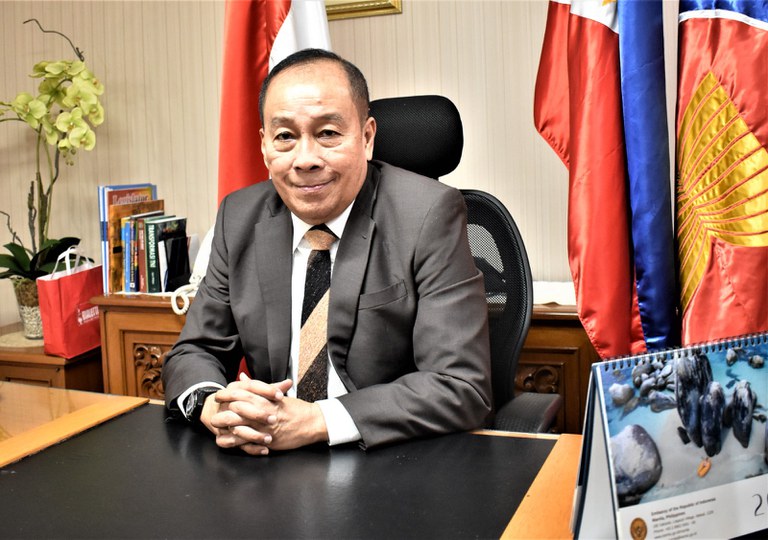“Gen. Widjojo was deeply involved with the reform of the socio-political role of the Indonesian Armed Forces – leading to the peaceful democratic succession of President Suharto in 1998 … with the surrender of the privileged position of Chief-of-Territorial Affairs that he had previously held, and with the surrender of the Armed Forces faction in the Indonesian Parliament,” says a bio of Agus on the institute’s website.
“He has been instrumental in the transformation of the National Military into a fully professional military, ready to sustain Indonesia in a democratic era.”
Indonesia’s dictator Suharto, a former general, resigned after 32 years in power in 1998 amid political and economic upheaval.
After Suharto’s departure, the Indonesian military was stripped of its dwi-fungsi (dual function), which allowed military officers to occupy top positions in Indonesian politics and governance.
‘Quiet diplomacy needed’
Agus said any envoy that Indonesia sends to Myanmar should be able to see the big picture and set priorities on what needs to be discussed with parties there.
“In principle, we must push them to find their own solution. I don’t believe that change can be forced from the outside,” he said.

Agus should know what he is talking about.
In 2007, he attended the funeral of former Myanmar Prime Minister Soe Win as an envoy to Jokowi’s predecessor, Susilo Bambang Yudhoyono, or SBY, as he is popularly called.
In the following years, he met with retired and active military officers in Myanmar, as well as officials from then-opposition leader Aung San Suu Kyi’s National League for Democracy (NLD), he said, all as part of efforts to help the country transition to democracy.
SBY, who was Indonesia’s first directly elected president and himself an ex-general, helped mediate conflicts between the Myanmar government and ethnic minorities, provided input on drafting democratic laws, and invited officials to learn about democratic institutions.
Such interactions, though, diminished after a change in government in Jakarta in 2014 when Jokowi was elected president. Until last year, Jokowi had focused more on domestic affairs and shown little interest in diplomacy.
Now, as he approaches the end of his second and last five-year term, Jokowi may be looking for a last hurrah, but most analysts are doubtful it will come via Myanmar transitioning successfully to a democracy any time soon.
Michael Vatikiotis, a Southeast Asia expert, said on Twitter that the issue about who will be envoy is a distraction.
“This obsession with appointing an envoy distracts from the job of quiet diplomacy needed to engage all the relevant parties in Myanmar,” Vatikiotis said.